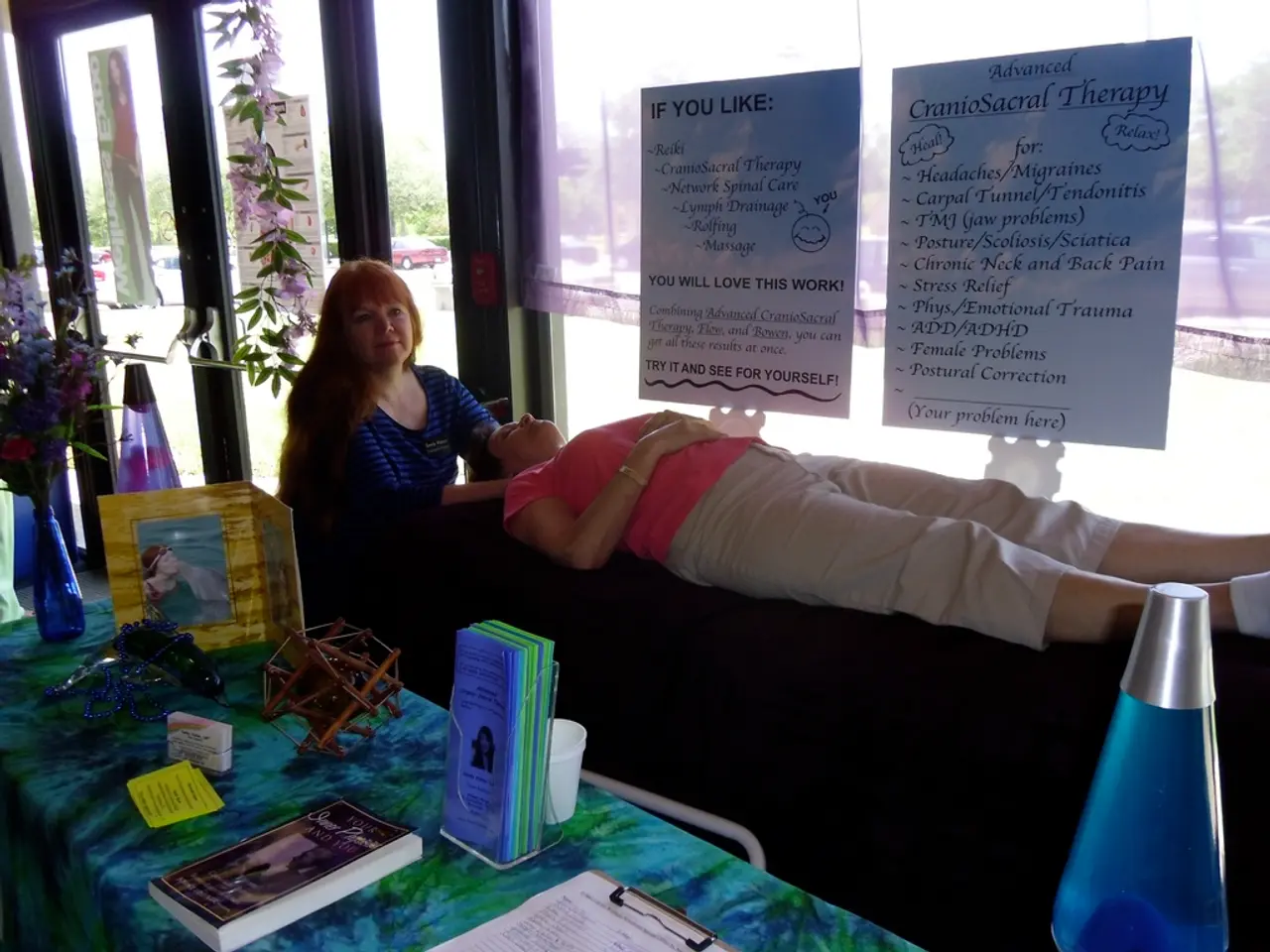THC Microdosing for Depression: Exploring Possible Advantages and Downsides
Depression is a common mental health issue that affects millions worldwide, and while traditional treatments like antidepressants and therapy can help, some folks seek alternative methods. One such approach is microdosing THC, a popular psychedelic compound found in marijuana. This guide dives into the potential pros and cons of using small THC doses to manage depression symptoms.
Depression and Traditional Treatments
Depression is a complex condition, characterized by prolonged feelings of sadness, hopelessness, and a lack of interest in daily activities. It impacts approximately 280 million individuals worldwide, making it one of the most widespread mental health disorders. Symptoms include sleep disruptions, changes in appetite, difficulties concentrating, and in severe cases, thoughts of self-harm or suicide.
Conventional treatments for depression typically involve psychotherapy and medication. Cognitive-behavioral therapy (CBT), interpersonal therapy, and selective serotonin reuptake inhibitors (SSRIs) are common treatments. However, these solutions have their limitations. Some patients experience minimal relief from their symptoms, while others encounter adverse effects from medications. This has led many to explore alternative options, like investigating the potential of psychedelics, such as DMT, for depression and anxiety.
The Background of Microdosing THC
Microdosing pertains to using minuscule amounts of a substance, in this case, THC, to achieve minor effects without experiencing the full psychoactive impact. THC binds to receptors in the endocannabinoid system, which plays a role in regulating mood, appetite, sleep, and other physiological processes.
At low doses, THC can influence neurotransmitter release and neural activity, potentially contributing to improved mood, reduced anxiety, and better sleep quality. It's crucial to remember that microdosing THC offers different effects than regular cannabis use, the goal being to achieve therapeutic benefits without the high frequently associated with larger doses.
Potential Benefits of Microdosing THC
While research on microdosing THC specifically for depression is limited, anecdotal reports and preliminary studies indicate several potential advantages:
- Enhanced mood and improved emotional regulation
- Decreased anxiety and stress
- Improved sleep quality
- Increased focus and productivity
Understanding THC to CBD ratios can help individuals find the right blend for their needs.
Risks and Considerations of Microdosing THC
As promising as microdosing THC seems, it's essential to consider the potential risks and drawbacks:
- Possible side effects: Side effects may include dry mouth, red eyes, or mild cognitive impairment.
- Legal considerations: Laws regarding THC vary by region, so it's crucial to be aware of local laws and regulations.
- Interaction with medications: THC can interact with certain drugs, including antidepressants. Consulting with a healthcare provider is necessary before combining THC with other treatments.
- Risk of developing tolerance or dependence: While microdosing aims to minimize this risk, the potential for developing tolerance or psychological dependence still exists.
- Variability in individual responses: The effects of THC can vary significantly between individuals, making it challenging to predict outcomes.
Practical Guide to Microdosing THC
For those contemplating microdosing THC for depression, here's a practical guide:
- Determining the correct dosage: Start with the lowest possible dose (1–2.5mg of THC) and increase if necessary. The objective is finding the minimum effective dose.
- Methods of consumption: Options include oils, tinctures, edibles, or vaporizers. Each method has different onset times and durations. Choose based on your preferences and needs.
- Establishing a microdosing schedule: Common schedules include dosing every third day or adhering to a "five days on, two days off" pattern. Find what works best for you while giving time to evaluate effects.
- Monitoring effects and making adjustments: Keep a journal to track mood, energy levels, and any side effects. This information can help you and your healthcare provider make informed decisions about continuing or adjusting your microdosing regimen.
Conclusion
Microdosing THC for depression could be a groundbreaking approach for some individuals. However, it's crucial to weigh the potential advantages against the risks and legal considerations. While some individuals report positive outcomes, more research is needed to fully grasp the long-term effects and efficacy of this method.
It's essential to consult with healthcare professionals before beginning any new treatment for depression, including microdosing THC. They can provide tailored advice based on your medical history and ongoing treatments. For those intrigued by alternative treatments, learning about the potential therapeutic effects of other substances, such as DMT on depression, may offer additional insights.
As research in this field continues to evolve, staying informed about new developments is vital. Future studies may provide more concrete evidence on the effectiveness of microdosing THC for depression and establish standardized protocols for its use. Ultimately, managing depression often necessitates a multifaceted approach. Whether exploring traditional treatments, alternative methods like depression hash, or microdosing THC, prioritizing mental health and well-being is essential.
- Depression, a widespread mental health issue, can lead to sleep disruptions, changes in appetite, difficulties concentrating, and, in severe cases, thoughts of self-harm or suicide.
- In addition to traditional treatments like psychotherapy and medication, some individuals seek alternative methods, such as investigating the potential of psychedelics like DMT for depression and anxiety.
- Microdosing THC, a method using minuscule amounts of THC, can influence neurotransmitter release and neural activity, potentially contributing to improved mood, reduced anxiety, and better sleep quality.
- It's crucial to understand that microdosing THC offers different effects than regular cannabis use, with the goal being to achieve therapeutic benefits without the high often associated with larger doses.
- For those contemplating microdosing THC for depression, establishing a microdosing schedule, determining the correct dosage, understanding THC to CBD ratios, and monitoring effects can help in making informed decisions about continuing or adjusting the regimen.








